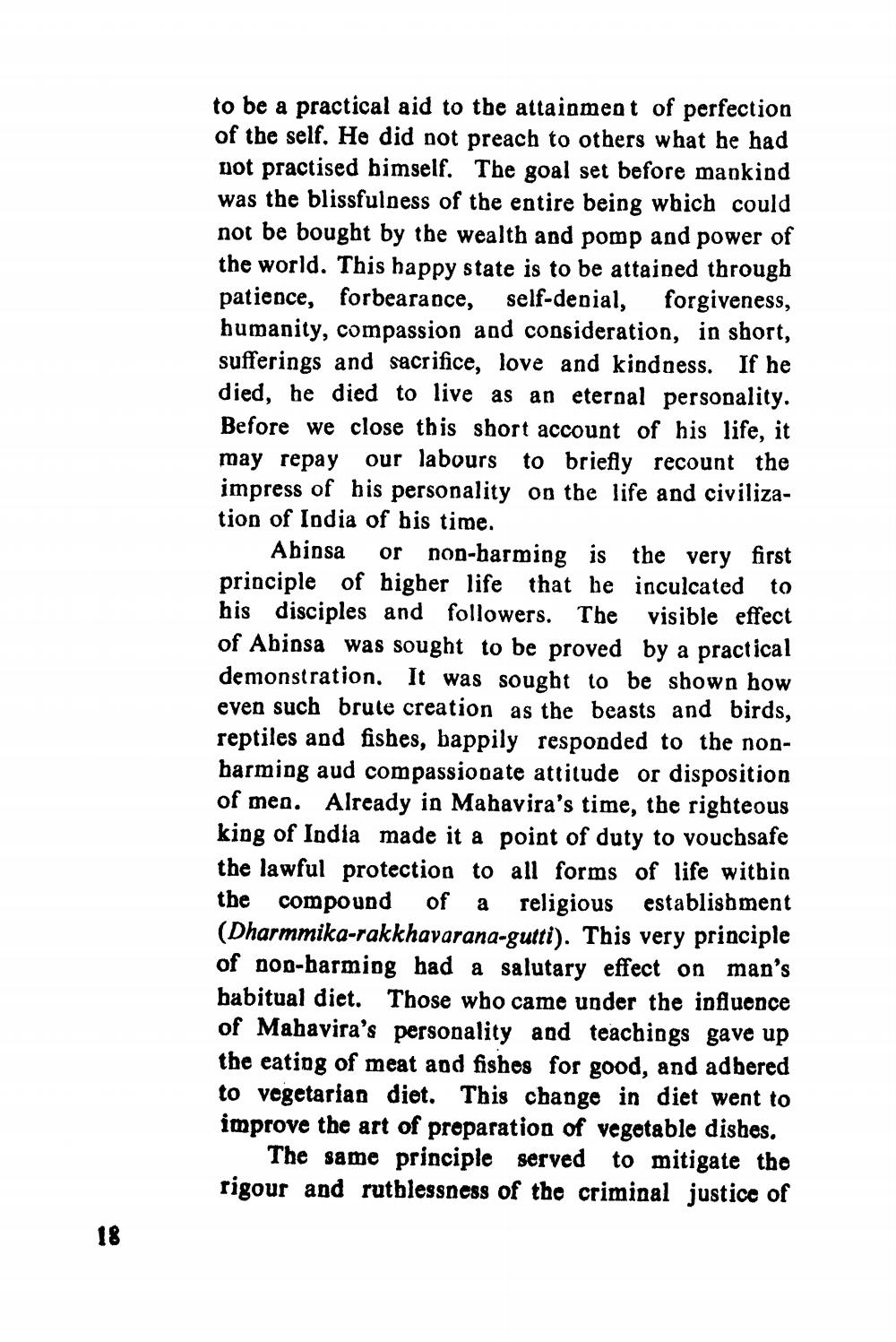________________
to be a practical aid to the attainment of perfection of the self. He did not preach to others what he had not practised bimself. The goal set before mankind was the blissfulness of the entire being which could not be bought by the wealth and pomp and power of the world. This happy state is to be attained through patience, forbearance, self-denial, forgiveness, humanity, compassion and consideration, in short, sufferings and sacrifice, love and kindness. If he died, he died to live as an eteroal personality. Before we close this short account of his life, it may repay our labours to briefly recount the impress of his personality on the life and civilization of India of bis time.
Abipsa or non-harming is the very first principle of higher life that he inculcated to his disciples and followers. The visible effect of Abinsa was sought to be proved by a practical demonstration. It was sought to be shown how even such brute creation as the beasts and birds, reptiles and fishes, bappily responded to the nonharming aud compassionate attitude or disposition of men. Already in Mahavira's time, the righteous king of India made it a point of duty to vouchsafe the lawful protection to all forms of life within the compound of a religious establishment (Dharmmika-rakkhavarana-gutti). This very principle of non-harmiog had a salutary effect on man's habitual diet. Those who came under the influence of Mahavira's personality and teachings gave up the eating of meat aod fishes for good, and adbered to vegetarian diet. This change in diet went to improve the art of preparation of vegetable dishes.
The same principle served to mitigate the rigour and rutblessness of the criminal justice of




